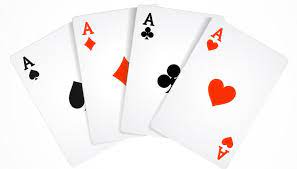Dealing Unity: Card Games That Scale for Team-Building Success, Whether Large or Small
Embarking on a journey of team-building requires more than just camaraderie; it demands a collective sharpening of problem-solving skills. Card games, with their strategic nature and dynamic gameplay, emerge as effective tools in honing these crucial skills within a team-setting. The strategic decisions made around the card table not only contribute to the thrill of the game but also foster problem-solving abilities that transcend the realm of cards. Use AGB99 LINK for easy access.
Card games enhance problem-solving skills in a team-building setting by requiring players to analyze situations, make informed decisions, and adapt to evolving circumstances. Games like Bridge, Poker, or even collaborative card games demand a level of critical thinking that mirrors real-world problem-solving scenarios. Teams must strategize, anticipate opponents’ moves, and adjust their plans accordingly, fostering a culture of analytical thinking and quick decision-making.

Moreover, the collaborative aspect of many card games amplifies their impact on team problem-solving. As team members work together to achieve a common goal – be it winning a round or completing a challenging game – they develop a synergy that transcends individual contributions. The shared responsibility for problem-solving instills a sense of unity and encourages teams to leverage the collective intelligence of the group, emphasizing the importance of collaboration in overcoming challenges.
When it comes to selecting card games for team-building activities, versatility is key. Certain card games seamlessly adapt to both large and small teams, ensuring an inclusive and engaging experience for all participants. Games like Codenames or Spades are excellent choices that scale effortlessly, providing an equally enjoyable experience whether played by a handful of participants or in a larger group setting. This adaptability ensures that the benefits of team-building through card games are accessible to teams of varying sizes and compositions.
In conclusion, the strategic and collaborative nature of card games makes them powerful allies in enhancing problem-solving skills within a team-building context. As teams engage in critical decision-making, adaptability, and collaboration, they not only experience the thrill of the game but also lay the foundation for a culture of problem-solving excellence. Selecting versatile card games ensures that teams, whether large or small, can harness the benefits of these dynamic activities, promoting unity and skill development in equal measure.